If you have a loved one that you know or suspect is struggling with drug or alcohol addiction, then an intervention could be the best way to help them to attend drug and alcohol rehab in Stevenage.
Professional interventions are held by interventionists, who can help you put together an intervention for a loved one and lead the process.
The intervention process begins with a gathering of the family, friends and loved ones of the addicted person and the addicted person themselves.
Led by the interventionist, the loved ones then discuss their concerns with the addicted person, describe the impact that their addiction has had and try to motivate the person to seek drug and alcohol rehab in Stevenage.
Although interventions can be carried out by the loved ones alone, having a professional interventionist can make the process a lot easier.
An interventionist can help to plan the intervention, mediate and direct the conservation and provide professional support for everyone involved.
Interventions should focus on supporting the person struggling with addiction and motivating them to get help, guiding them on what treatment they can receive and helping them realise the impact their addiction has had on their and their loved ones lives.
Notes or letters can be written by the loved ones to help them to plan out what they are going to say.
Interventions can provide the motivation that people need to seek help, and should be a supportive and judgement free process.
Contact a professional interventionist in Stevenage through the OK Rehab team today and you can get started in the process towards addiction recovery for your loved one.
How Much Does Rehab Cost In Stevenage?

The cost of drug and alcohol rehab in Stevenage depends on the type of treatment you receive, how long you are in treatment and whether you are funded privately or on the NHS.
1. The Cost of NHS Rehab in Stevenage
Addiction treatment on the NHS is free to all UK residents, and can help with all types of drug and alcohol addiction.
The NHS funds both inpatient and outpatient treatment options, with detoxification programmes and therapies to help you overcome your addiction.
Although therapy types are limited and waiting times can be very long, NHS drug and alcohol rehab offers an affordable option for all in Stevenage and ensures that you can receive addiction treatment no matter what your financial situation is.
At OK Rehab, we offer free advice from a team of non-judgemental professionals, many of whom are in recovery and understand how hard it can be to change your relationship with addiction.
To find out more about rehab in Stevenage, simply reach out to our 24/7, confidential hotline on 0800 326 5559.
2. Free Outpatient Support via Stevenage Charities
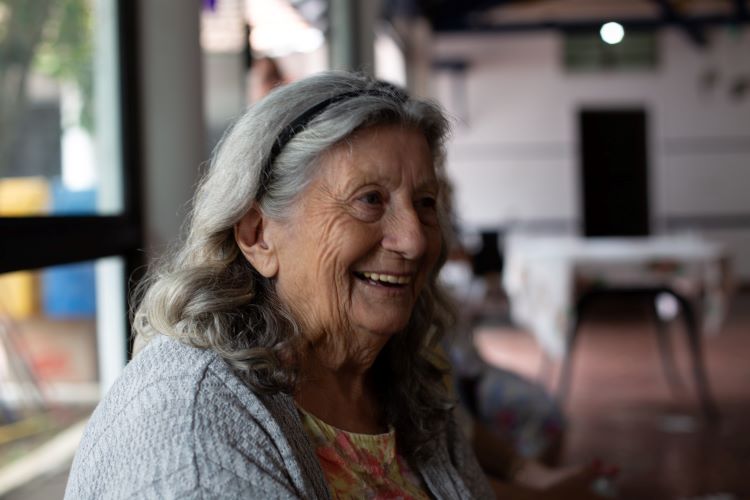
Local charities in Stevenage as well as charities offering long distance support are another great way of getting addiction treatment.
Charities often offer free services in the form of local support groups, telephone support, 1 to 1 therapy and online peer support meetings.
These are usually funded by donations from the public, and therefore services can be limited, with charities offering less intensive primarily outpatient care.
3. Private Drug and Alcohol Rehab in Stevenage
Private drug and alcohol rehab in Stevenage has a variety of inpatient and outpatient addiction treatments which are usually available immediately or within 1 week.
Private rehab costs depend on which clinic you attend, what type of therapies you have and your room type however the average cost is £495 per day.
For a full 28 day course of inpatient treatment (the recommended length of inpatient drug and alcohol addiction) the average cost is around £14,000 overall.
However, prices vary from £1,000 a week to £10,000 a week. If you have health insurance, some or all of your Stevenage addiction treatment might also be covered by your insurance policy.
Is Drug And Alcohol Rehab Covered By Health Insurance?

Health insurance can sometimes cover the cost of drug and alcohol rehab in Stevenage, so it is well worth investigating whether you are covered before entering a treatment programme.
Popular insurance companies such as Aviva and Bupa cover drug and alcohol rehabilitation, however the coverage you have will depend on your individual policy.
It is best to review your insurance paperwork and/or contact your insurance provider to see whether you are covered. Some policies cover a full 28 day stay in rehab, whereas others might only cover outpatient treatments.
You can visit our Health Insurance page to see what you need to ask your insurance provider to see if you are covered for addiction treatment and which treatment you can receive on insurance.
At OK Rehab, we offer free advice from a team of non-judgemental professionals, many of whom are in recovery and understand how hard it can be to change your relationship with addiction.
To find out more about rehab in Stevenage, simply reach out to our 24/7, confidential hotline on 0800 326 5559.
Is Drug And Alcohol Rehab On The NHS?

NHS Drug and alcohol rehab in Stevenage is available free of charge to all UK residents and has options for inpatient and outpatient treatment.
However, waiting lists can be between 6 months to 1 year for inpatient treatment due to limited spaces and can be 3 months or more for outpatient treatment.
This is due to the sheer number of people needing NHS addiction treatment in the UK and the limited amount of funding the NHS has for drug and alcohol addiction treatments.
NHS addiction treatment is accessible to all, and although treatment options are more limited, it does allow everyone to get help for their addiction regardless of their financial situation.
In order to get a referral for NHS addiction treatments, you will need to see your GP and discuss your treatment needs with them. You can also contact OK Rehab and see what NHS treatments are available in Stevenage.
Therapies such as cognitive behavioural therapy (CBT), SMART recovery and one to one support are available on the NHS and for free through charities such as Change, Grow, Live. [1]
How Long Does Drug and Alcohol Rehab in Stevenage Last?
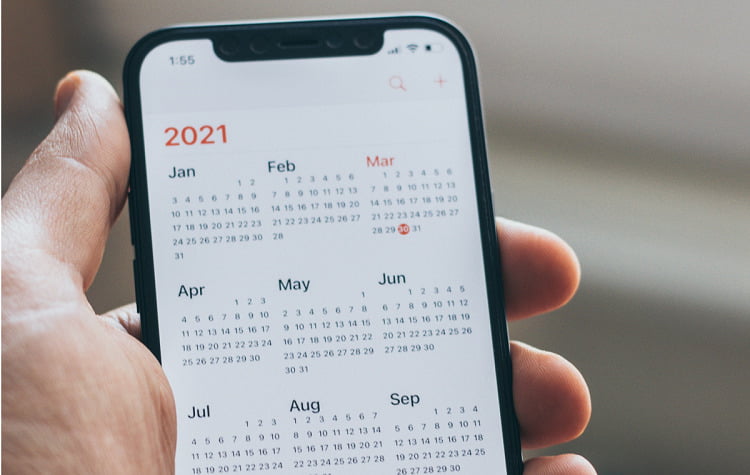
The recommended minimum stay for inpatient drug and alcohol rehab is 28 days. During that time, you will be able to go through detoxification as well as addiction therapies which can together help your mind and body to begin to overcome your addiction.
If you are in an alcohol detox in Stevenage, then the minimum stay for detox is 7 days due to the risk factors involved in alcohol detox (see ‘alcohol detox’ section below for further information).
The length of stay for a drug detox depends on the type of drug you are detoxing from, however most rehab clinics will recommend people stay for a period of 7-10 days (either in the clinic for inpatient detox, or in their home for a home detox).
Following the detox period, you will undergo addiction treatments for your drug and/or alcohol addiction. These can last anywhere from 2-6 weeks to 3-6 months, depending on the treatment type and your own individual needs.
These treatments can include therapies such as group therapy, family therapy and CBT, as well as other treatments such as addiction counselling, 12 step programmes and contingency management.
Outpatient services in Stevenage such as drop in sessions, counselling, telephone/online support and group therapy can also last a lot longer as many of these services are available to you as and when you need them.
At OK Rehab, we offer free advice from a team of non-judgemental professionals, many of whom are in recovery and understand how hard it can be to change your relationship with addiction.
To find out more about rehab in Stevenage, simply reach out to our 24/7, confidential hotline on 0800 326 5559.
NHS Vs. Private Drug and Alcohol Rehab

The primary differences in private and NHS addiction treatment in Stevenage is the cost, the therapies available and the waiting times.
Both private and NHS rehab offers top quality care, and the medical professionals working in both the private and public health sectors are highly trained to provide treatment to those struggling with addiction.
- Whilst NHS drug and alcohol rehab in Stevenage is free to all UK residents, private drug and alcohol rehab costs an average of £495 per day and £14,000 overall.
- Private drug and alcohol rehab however, has waiting lists of up to 1 week with most clinics admitting patients within 24-48 hours. NHS waiting lists are often between 3 months and 1 year.
- A variety of therapies are available in private treatment such as art therapy, acupuncture and adventure therapy, whereas NHS addiction treatments are more limited.
- NHS drug and alcohol rehab has limited inpatient spaces which often come with a long waiting list. Private drug and alcohol rehab has inpatient and outpatient spaces available straight away.
The range of NHS and private addiction treatments available in Stevenage means that there is addiction treatment available for all. If you are struggling, then get in touch with our team or visit your local GP to discuss private and NHS rehab treatment options.
Inpatient or Outpatient Treatment in Stevenage

Inpatient drug and alcohol rehab in Stevenage, is a recommended course of treatment for moderate and severe cases of addiction, those with addictions to particularly harmful substances and for patients who would benefit from a more intensive programme.
During inpatient treatment, a patient stays in the rehab clinic during the day and overnight throughout their course of treatment.
This is usually 28 days overall for drug and alcohol rehab, consisting of a 7-10 day detox followed up addiction therapies.
Inpatient rehab however is more costly overall, so outpatient rehab can be a more cost effective option for private patients and more accessible for NHS patients due to limited inpatient NHS spaces.
Outpatient rehab in Stevenage is also ideal for patients who have mild to moderate addictions, no co-occurring disorders or health conditions (or conditions which are being managed), a safe home environment and would benefit from having more independence in their recovery.
Outpatient treatment in Stevenage also has different levels of intensity, for example part-hospitalisation which is when a patient remains inpatient at the start of treatment (i.e. for a drug or alcohol detox) and then returns home and only comes into the rehab clinic for their therapies.
The amount of time a patient spends in the clinic as an outpatient varies, as all outpatients only remain in the rehab clinic during their treatment sessions before returning home overnight.
Some outpatient programmes known as Intensive Outpatient Programmes (IOP’s) are scheduled for a patient to receive several hours of treatment per week with more regular, longer sessions depending on the patient’s need.
There are also less intense outpatient programmes in Stevenage which consist of only a few hours of treatment per week.
Whether you undergo inpatient or outpatient addiction treatment in Stevenage will depend on a number of factors such as how severe your addiction is, whether you enter into NHS or private treatment and whether your home environment and general health is likely to affect your recovery.
Alcohol Detox & Rehab In Stevenage
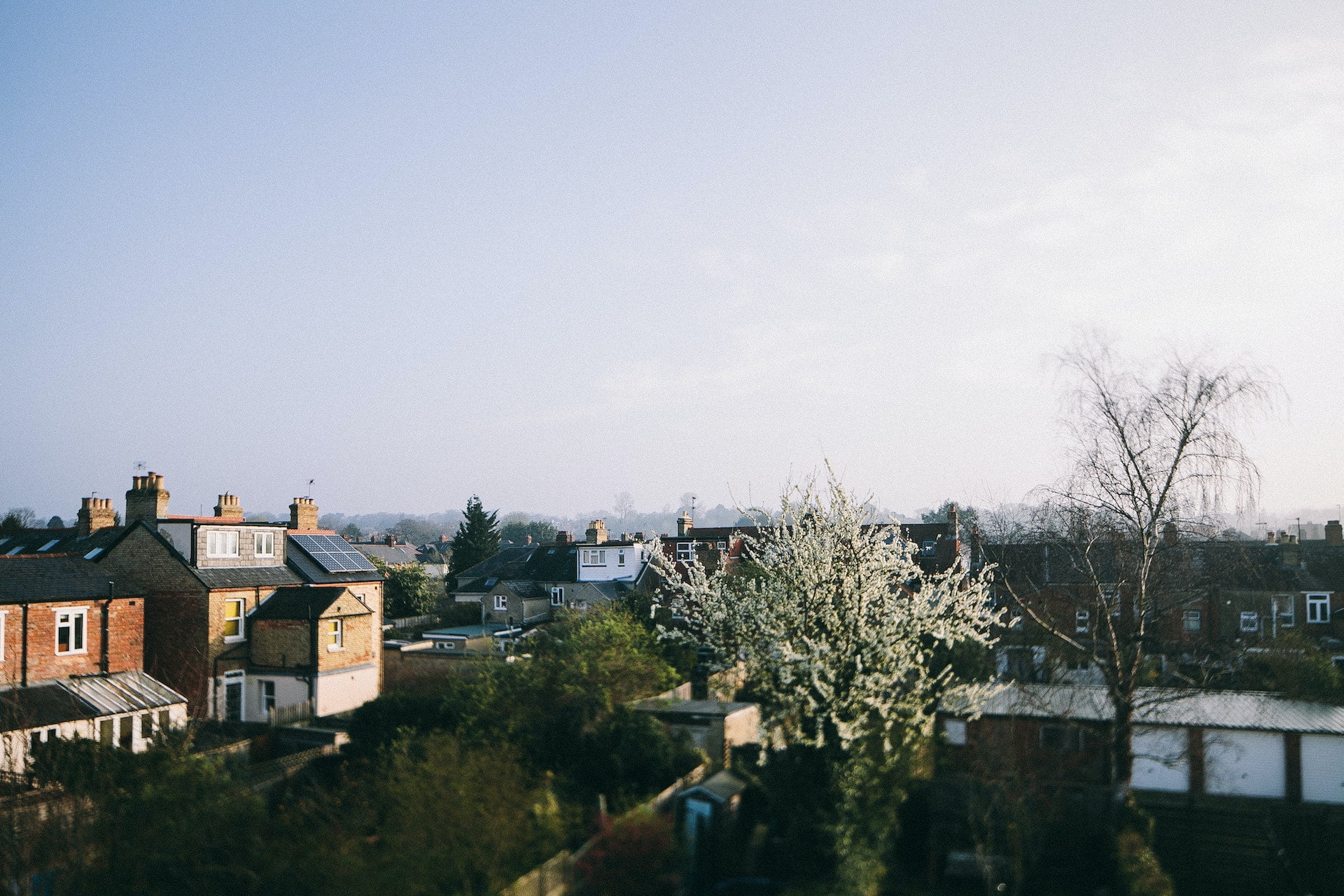
If you or a loved one find that you are struggling with alcohol addiction, then alcohol rehab can help to get you back on your feet through detoxification and addiction treatments.
As aforementioned, alcohol detox in Stevenage lasts a minimum of 7 days and this is usually on an inpatient basis. This is due to the potential dangers of alcohol detox, as withdrawal symptoms such as seizures and the delirium tremens (DTs) can cause permanent memory disorders (e.g. Wernicke-Korsakoff syndrome), or even death. [2]
Whereas milder cases of alcohol addiction might not need an inpatient detox, it is important that anyone who has moderate to severe alcohol addiction is supervised during detox either in a Stevenage rehab centre or through a home detox which is managed by a medical professional.
Some of the withdrawal symptoms associated with alcohol detox include anxiety, sleep disturbance, increased heart rate, nausea, vomiting, depression and mood swings. The more severe symptoms include the shaking, confusion and hallucinations associated with the DTs.[2]
Inpatient alcohol detox is often managed medically (this is known as a ‘medical detox’ or ‘pharmaceutical detox’) and the medication helps to lessen the severity of the withdrawal symptoms.
Commonly used medications in alcohol detox include benzodiazepines (e.g. chlordiazepoxide and diazepam), Naltrexone and Acamprosate. These medications help to lessen the severity of withdrawals as well as reduce the risk of relapse. [3]
Following a successful at home or inpatient detox, you will then undergo a course of addiction treatment therapies to tackle the emotional, behavioural, social and psychological aspects of your addiction.
These treatments could include CBT, family therapy, motivational interviewing or one to one counselling. Many people in addiction recovery receive multiple types of treatment during their drug or alcohol rehab in Stevenage, especially if they have dual diagnosis.
When you complete your detox and course of inpatient or outpatient treatment, you will then be given a relapse prevention plan and contacts for aftercare services.
At OK Rehab, we offer free advice from a team of non-judgemental professionals, many of whom are in recovery and understand how hard it can be to change your relationship with addiction.
To find out more about rehab in Stevenage, simply reach out to our 24/7, confidential hotline on 0800 326 5559.
Rehab For Cocaine In Stevenage
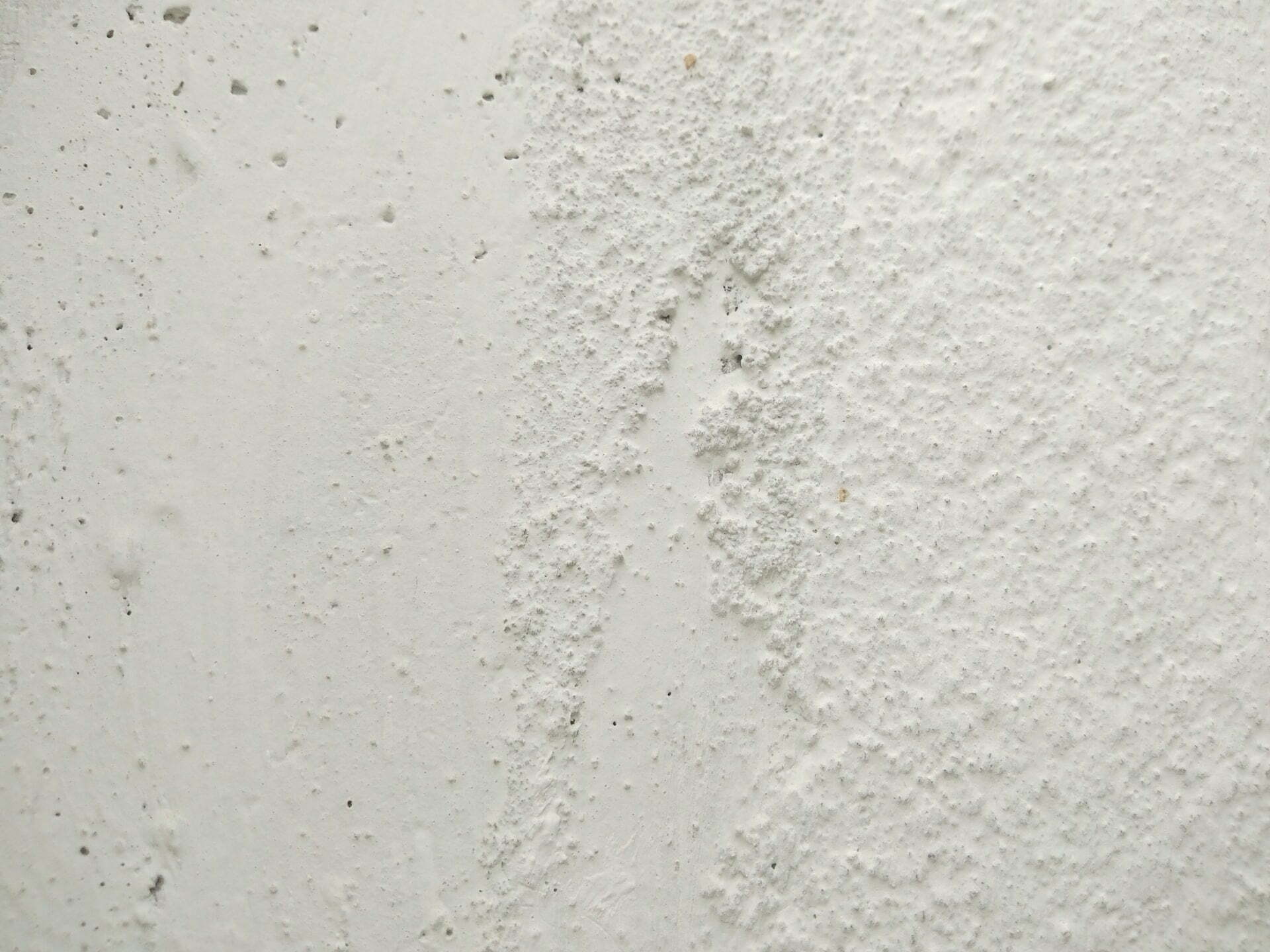
Cocaine detox is the first stage of rehabilitation for cocaine addiction, and although it is less dangerous than alcohol detox, it is still a very challenging time especially when coping with cocaine withdrawal symptoms.
For this reason you could either undergo an at home detox or an inpatient detox in at a Stevenage rehab centre
Inpatient detox for cocaine is common, particularly because around 68% of individuals who seek treatment for cocaine smoke crack cocaine and are more likely to be polydrug users (i.e. users of more than one drug). [4]
The usage of powder cocaine has also increased over the years, with numbers up to 52% higher than 10 years ago. [5]
However, many people do not realise the harmful effects that such a widely used drug has on the mind and body, and the health risks associated with its usage.
Cocaine use has been associated with heart problems, nasal issues such as nosebleeds and a deterioration of the cartilage, respiratory problems, and difficulty breathing, ulcers, seizures and strokes. [6] [7]
The withdrawal symptoms of cocaine include anxiety, depression, poor concentration, fatigue, paranoia and sleep difficulties.
Most cocaine detox programmes do not include medications to help with the addiction itself, however your detox may be assisted with medication to help reduce the severity of some of the withdrawal symptoms such as anxiety and sleep problems or to help reduce the risk of relapse.
Following a detox, you will then be put on a course of addiction therapies in Stevenage. Treatments such as cognitive behavioural therapy have proven successful for helping with cocaine addiction, and one to one counselling can also help you work through the psychological aspect of your addiction. [8]
Rehab For Heroin Rehab In Stevenage

Heroin addiction can be incredibly damaging to both the person addicted to the drug and those around them.
If you fear that you or a loved one might be addicted to or becoming addicted to heroin, seek addiction treatment in Stevenage as soon as possible to kickstart your recovery.
Heroin addiction can lead to serious physical and mental health issues such as damage to the lips, mouth and lungs, infections and injury at injection sites which can lead to amputation, collapsed veins, infections of the heart valves and infections of hepatitis B, hepatitis C and HIV. [8] [6]
Detoxing from heroin can be very dangerous, as like alcohol the body can become highly physically dependent on it and therefore withdrawal symptoms can be severe and even fatal.
Therefore an inpatient detox in Stevenage is usually recommended for heroin addiction, and often medically assisted with the use of medications such as methadone, buprenorphine (e.g. Subutex) and Naltrexone (e.g. Vivitrol) is often used to reduce the symptoms and lessen the likelihood of relapse.
Some of the withdrawal symptoms of heroin addiction include muscle cramps/pain, restlessness, nausea, vomiting, diarrhoea, insomnia, shaking and fast pulse and increased breathing rate. [8]
Following a successful detox, you will go through a course of addiction therapies. Family therapy in particular has shown to be effective in treating heroin addiction, however other therapies and local support groups in Stevenage are also likely to be used. [9]
At OK Rehab, we offer free advice from a team of non-judgemental professionals, many of whom are in recovery and understand how hard it can be to change your relationship with addiction.
To find out more about rehab in Stevenage, simply reach out to our 24/7, confidential hotline on 0800 326 5559.
Rehab For Cannabis In Stevenage

Cannabis use can have very negative effects on a person’s life from their motivation to pursue their goals to their cognitive functioning. [10]
However, it is also the most commonly used drug, and many people do not realise the negative effects until after they have developed a dependency on the drug.
Data suggests that up to 30% of cannabis users will develop some dependency on the drug, and around 9% become fully dependent. [11]
Cannabis addiction can be treated via inpatient or outpatient drug rehab, and as with all addictive substances the first stage is a detox.
Detoxing from cannabis is less dangerous than heroin or alcohol detox, and the withdrawal symptoms are less severe. Therefore outpatient detox is usually recommended for patients in cannabis addiction recovery.
However, it is still very difficult to stop taking any addictive substance, and the withdrawal symptoms can also be very hard to deal with alone.
Some of the most commonly experienced withdrawal symptoms from cannabis addiction are anxiety, insomnia, headaches, irritability, loss of focus, sweating, depression and stomach problems.
Medical detox is not used in cannabis detox, however medications might be used to manage symptoms such as insomnia and therefore reduce the risk of relapsing.
After completing a detox, addiction treatments such as addiction counselling and behavioural therapies in Stevenage will be used to help you in your recovery journey.
Types Of Therapies On Offer In Stevenage

There are a variety of addiction therapies available to help you to work through and overcome all aspects of your addiction.
The initial detox helps your body recover physically as you no longer have the substance in your system, the therapies then help you tackle the social, behavioural, emotional and psychological elements of your addiction in order to aid long term recovery.
Behavioural Therapy in Stevenage
Cognitive Behavioural Therapy (CBT) and Dialectical Behaviour (DBT) are examples of therapies which focus on changing your thought patterns and behaviours to help you overcome addiction.
You may have group sessions or individual sessions, and these usually involve unpacking your thought processes and challenging them, keeping a diary of your addictive thoughts and being given tools to manage your emotional responses to situations.
CBT and DBT both focus on changing behaviours and thought patterns, however DBT has more of a focus on emotion and mindfulness.
At OK Rehab, we offer free advice from a team of non-judgemental professionals, many of whom are in recovery and understand how hard it can be to change your relationship with addiction.
To find out more about rehab in Stevenage, simply reach out to our 24/7, confidential hotline on 0800 326 5559.
Medication for Drug and Alcohol Addiction in Stevenage
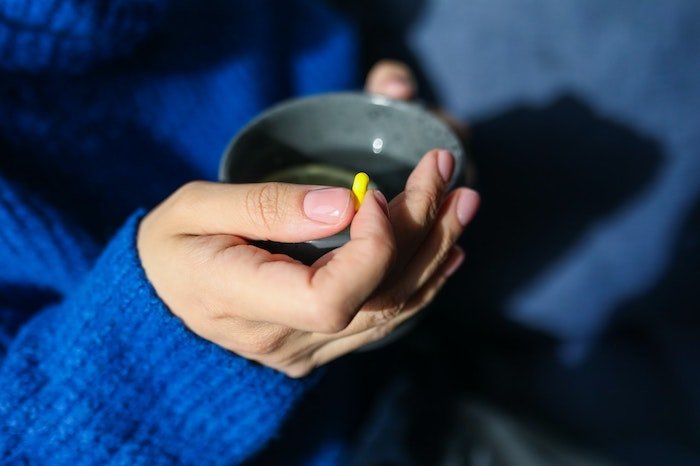
Medications are often used for withdrawal symptoms, cravings and co-occurring disorders in addiction recovery. When they are used, this will often be alongside addiction therapies so that all aspects of your addiction are tackled.
Medication Assisted Therapy (MAT) is often used in alcohol and opioid addiction in Stevenage to help with withdrawal symptoms, cravings and the side effects of the substances they have been taking.
Social Therapies in Stevenage
Peer support groups, codependency therapy and family therapy help patients to overcome their addiction with the help of others and alongside loved ones.
Peer support groups in Stevenage prompt patients to share their experiences with others who have been through similar situations which can help patients to build relationships, know that they are not alone and learn coping strategies from others who have benefited from them. [12]
Family therapy is very helpful in addiction as addiction often affects the entire family. Having an understanding of everyone’s perspective can help to rebuild relationships, strengthen a person’s social support network and increase the likelihood of recovery.
Individual Therapy and Counselling in Stevenage

Individual therapy and 1 to 1 addiction counselling in Stevenage can help you to talk through your thoughts, feelings and emotions when it comes to your addiction.
Depending on your experience of addiction, you might need counselling or therapy on a one to one basis to talk through the life experiences that you feel might have impacted your life, had an impact on the development or maintenance of your addiction or aspects that you fear might trigger you to relapse.
There are also more specific therapies such as Trauma Therapy in Stevenage for people with co-occurring disorders such as PTSD or for those who have traumatic experiences they need to work through.
There are a variety of other therapies which might be involved in your Stevenage addiction treatment, such as motivational interviewing or holistic therapies. The therapy options available to you and which you might benefit from most will be discussed with you when you reach out for treatment.
At OK Rehab, we offer free advice from a team of non-judgemental professionals, many of whom are in recovery and understand how hard it can be to change your relationship with addiction.
To find out more about rehab in Stevenage, simply reach out to our 24/7, confidential hotline on 0800 326 5559.
The Importance Of Dual Diagnosis For Co-Occurring Disorders in Stevenage

Co-occurring disorders are mental health disorders which are also present in someone who has substance use disorder (drug/alcohol addiction).
The dual diagnosis of a substance use disorder and co-occurring mental health disorder is very common, with around 7.7 million adults worldwide being affected. [13]
Some of the most common co-occurring disorders to have diagnosed alongside SUD are anxiety, depression, borderline personality disorder and PTSD.
It is vital that a dual diagnosis is explored for patients in Stevenage who have or are suspected of having co-occurring mental health issues, for three main reasons.
- The impact that SUD and co-occurring mental health disorders often have on one another
- The possibility of an SUD being used to mask/reduce the symptoms of a co-occuring disorder or/and of a co-occurring disorder being a potential risk factor for addiction
- The potential risks of treating one disorder without knowing its effect on the co-occurring disorder.
Taking all of these factors into consideration, it is always necessary to assess whether a patient has or might have a co-occurring disorder and a dual diagnosis ensures that they will get appropriate treatment for both conditions.
If you have, or think you might have, a co-occuring disorder when seeking treatment for your addiction in Stevenage, make sure you raise this during your assessment for treatment.
How Rehabs in Stevenage Help With Relapse Prevention

Drug and alcohol rehab in Stevenage will help you with long term recovery through aftercare services and relapse prevention.
It can often be incredibly challenging completing treatment and going back to daily life which is full of potential triggers and temptations, particularly if you completed inpatient treatment.
Relapse prevention plans are a key way to help you when you complete treatment, to ensure that you do not fall back into the cycle of addiction.
A relapse prevention plan teaches you to identify the stages of relapse, stop one stage from developing into the next and reduce the likelihood of relapse through useful tools and techniques.
These plans are personalised, and help a patient to contemplate their own potential triggers, cravings and temptations.
Working with your addiction specialist in Stevenage, you will then identify ways that you have found helpful in challenging these difficult areas of addiction recovery.
For example, if you know that boredom is a factor in your addiction, then perhaps during times when you feel bored you can find an alternative activity you enjoy doing.
Your relapse prevention plan will also include a list of contacts and aftercare services that you can get in touch with if you feel that you need extra support.
This may include crisis hotlines, local support groups in Stevenage, family, friends and addiction centres as well as contact information for other Stevenage outpatient aftercare services.
Other Services Available in Stevenage

1. The Living Room
Address: 8-10, the glebe, Chells Way, Stevenage SG2 0DJ
Telephone: 03003650304
Website: http://www.livingroomherts.org/
2. Spectrum Drug and Alcohol Recovery Services
Address: Armstrong House, Norton Road, Stevenage, SG1 2LX
Telephone: 0800 652 3169
Website: https://www.changegrowlive.org/spectrum-hertfordshire-drug-alcohol-services/stevenage
3. Mid Herts Mind
Address: 11 Hatfield Road, St Albans, AL1 3RR
Telephone: 03303 208100
Website: https://www.mindinmidherts.org.uk/
The NHS provides free and reliable information about drug and alcohol addictions and dependencies.
Attending nearby 12-Step programmes like Cocaine Anonymous, Narcotics Anonymous (NA) and Alcoholics Anonymous (AA) can be a great way to connect with other people in recovery.
SMART Recovery can help you to manage relapse triggers, control your thoughts and feelings, and stay sober.
Al-Anon are another useful tool that will make addiction easier to navigate for you and your loved ones.
More mental health support is available through Rethink Mental Illness, Young Minds, Samaritans and Papyrus.
Support Through OK Rehab

Rehab Recovery offers advice and rehabilitation throughout St Albans, Hatfield, Harpenden, Borehamwood, Royston, Welwyn Garden City, Stevenage, Hertford, Hitchin, Bishop’s Stortford, Watford, Letchworth Garden City, Berkhamsted, Baldock, Hemel Hempstead, Abbots Langley, Ashwell, Baldock, Barnet, Hitchin, Hoddesdon, Kimpton, King’s Langley, Knebworth, Berkhamsted, Bishop’s Stortford, Borehamwood, Broxbourne, Buntingford, Stevenage, and more cities and towns across Hertfordshire.
All of the rehabs we work in partnership with are regulated by the Care Quality Commission (England and Wales) or the Care Inspectorate (Scotland).
At OK Rehab, we offer free advice from a team of non-judgemental professionals, many of whom are in recovery and understand how hard it can be to change your relationship with addiction.
To find out more about rehab in Stevenage, simply reach out to our 24/7, confidential hotline on 0800 326 5559.
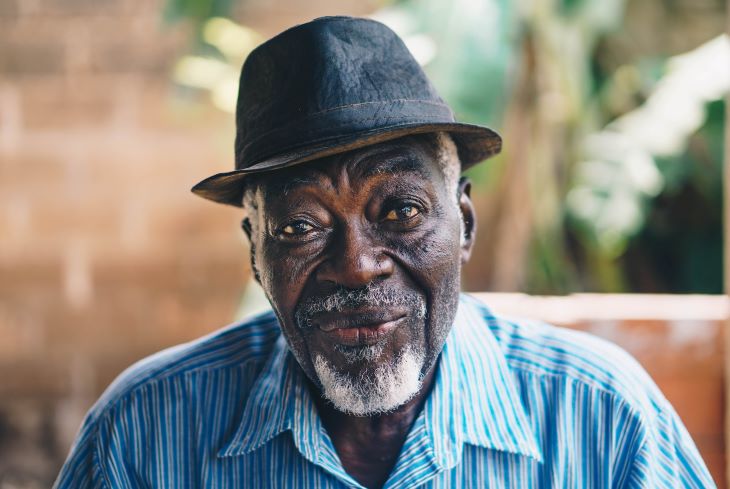
References
[1] Change, Grow, Live, Spectrum Drug and Alcohol Support Service (Stevenage), https://www.changegrowlive.org/spectrum-hertfordshire-drug-alcohol-services/stevenage
[2] Louis A. Trevisan et al. (1998) Complications of Alcohol Withdrawal, Alcohol Health and Research World, https://www.ncbi.nlm.nih.gov/pmc/articles/PMC6761825/#b28-arh-22-1-61
[3] National Institute of Health and Care Excellence (NICE), Alcohol dependence, https://bnf.nice.org.uk/treatment-summaries/alcohol-dependence/
[4] National Institute on Drug Abuse (2016) ‘How is cocaine addiction treated?’, Cocaine Research Report, https://nida.nih.gov/publications/research-reports/cocaine/what-treatments-are-effective-cocaine-abusers
[5] GOV.UK (2020) ‘Adult substance misuse treatment statistics 2019 to 2020: report’, Public Health England
[6] National Institute on Drug Abuse (2016) ‘What are the long-term effects of cocaine use?’, Cocaine Research Report, https://nida.nih.gov/publications/research-reports/cocaine/what-are-long-term-effects-cocaine-use
[7] Sung Tae Kim and Taehwan Park, ‘Acute and Chronic Effects of Cocaine on Cardiovascular Health’, International Journal of Molecular Sciences, https://www.mdpi.com/1422-0067/20/3/584
[8] NHS Inform (2022) Heroin, https://www.nhsinform.scot/healthy-living/drugs-and-drug-use/common-drugs/heroin
[9] Duncan Stanton et al (2009) ‘Heroin Addiction as a Family Phenomenon: A New Conceptual Model’, The American Journal of Drug and Alcohol Disorders, https://www.tandfonline.com/doi/abs/10.3109/00952997809027993
[10] Thomas Lundqvist (2005) ‘Cognitive consequences of cannabis use: Comparison with abuse of stimulants and heroin with regard to attention, memory and executive functions’, Pharmacology Biochemistry and Behavior, https://www.sciencedirect.com/science/article/abs/pii/S0091305705001334
[11] National Institute on Drug Abuse (2020) ‘Is marijuana addictive?’, Cannabis (Marijuana) Research Report, https://nida.nih.gov/publications/research-reports/marijuana/marijuana-addictive
[12] Kathlene Tracy and Samantha P Wallace (2016) ‘Benefits of peer support groups in the treatment of addiction‘, Substance Abuse and Rehabilitation, https://www.ncbi.nlm.nih.gov/pmc/articles/PMC5047716/
[13] National Institute on Drug Abuse (2018) Comorbidity: Substance Use and Other Mental Disorders, https://nida.nih.gov/research-topics/trends-statistics/infographics/comorbidity-substance-use-other-mental-disorders





